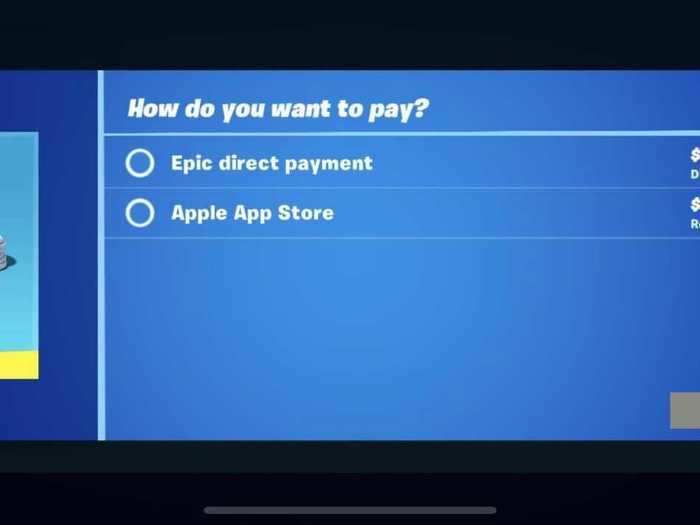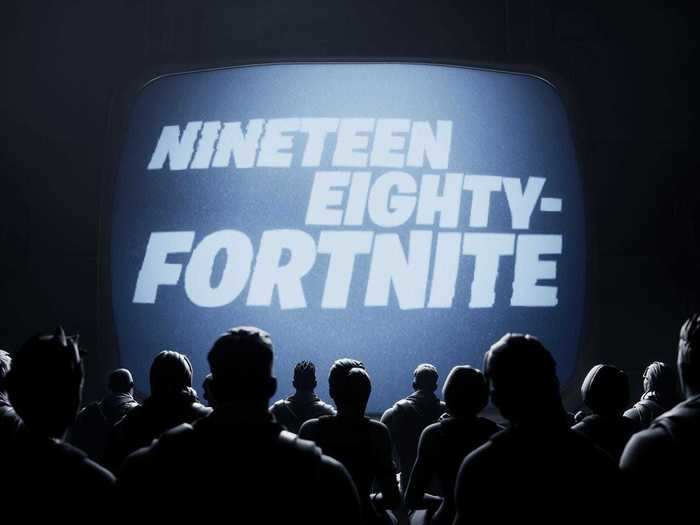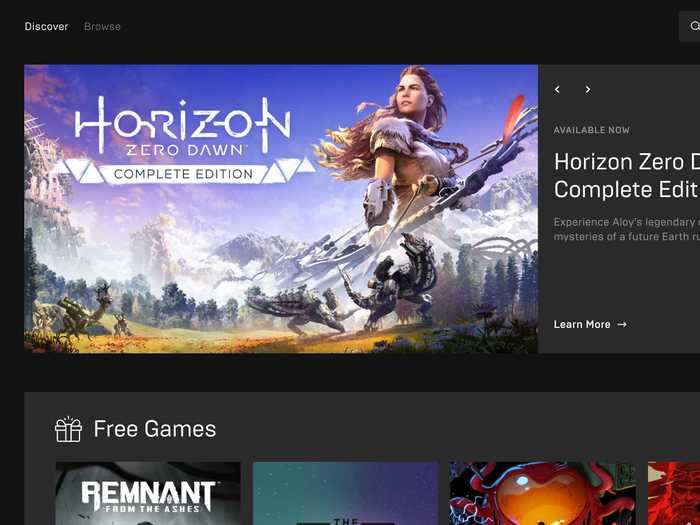Apple CEO Tim Cook speaks during an announcement of new products at the Apple Worldwide Developers Conference in San Jose, California on June 4, 2018.AP Photo/Marcio Jose Sanchez
- On August 13, the wildly popular game "Fortnite" got an update on Apple and Android smartphones that allowed players to bypass the companies' digital payment systems and pay Epic Games directly.
- In response, Apple and Google pulled "Fortnite" from their digital storefronts and cited the update as a terms-of-service violation — which caused Epic to sue both companies.
- The game is outright unable to be downloaded through the Apple App Store, nor can it be updated, leaving iPhone and iPad players behind when the new "Fortnite" season premieres on August 27.
- Epic filed for a temporary restraining order against Apple that would put it back on the App Store and enable it to be updated, but a judge ruled partially in favor of Apple on Monday evening.
- But the case is far from over: Epic and Apple's legal battle is just beginning. Here's everything that led to the major legal battle between two tech titans.
"Fortnite" maker Epic Games and Apple are at the earliest stages of a heated legal battle, and there's already been one major casualty: "Fortnite" was kicked off the App Store on August 13, and it's not coming back anytime soon.
Worse, the game can't be updated. Anyone playing "Fortnite" on iPhone or iPad won't be able to play the game's next season, which starts on August 27, nor will they be able to play with friends on other platforms.
So, how'd things get here, where one of the world's biggest games is suddenly banished from Apple's main devices? From private emails between CEOs with major demands to a carefully manufactured anti-Apple public relations campaign, here's a closer look at the twisted path Epic and Apple walked to this legal showdown.
What started all of this? An update to "Fortnite."
The payment system Epic added to the iOS and Android versions of "Fortnite."
Epic Games
On August 13, "Fortnite" players on iPhone, iPad, and Android devices started seeing a new payment option in the game.
The new option said "Epic direct payment," which is exactly what it sounds like: Instead of paying Apple, then Apple paying "Fortnite" maker Epic Games, you could pay Epic directly and it cost less for the same thing.
By doing this, Epic intentionally circumvented paying Apple and Google their respective cut of goods sold through their digital storefronts: 30%, an industry standard for digital platform holders like Apple, Google, Microsoft, Sony, Nintendo, and others.
In short order, both Apple and Google delisted the game from their respective app stores. Apple went a step further, and moved to revoke Epic's developer access to Apple software.
Apple CEO Tim Cook on Monday, Oct. 28, 2019, in New York City.
Evan Agostini/Invision/AP
As a result of the payment option being added, which violated terms of service, both Apple and Google pulled "Fortnite" from their respective digital storefronts. Being pulled from both storefronts makes the game unable to be downloaded if you haven't done so before, and it also stops the game from receiving future updates.
That last bit is particularly critical for "Fortnite," an online game with seasonal updates. When the next update arrives, players on iPhone and iPad won't be able to play it, or buy the new Battle Pass, or play with friends on other consoles.
Beyond "Fortnite," Epic also maintains the Unreal Engine — a set of software that's used to create games, including the smartphone versions of "PlayerUnknown's Battlegrounds." But Apple also revoked Epic's access to its software development kit, which has a major impact on Unreal Engine and the games created with it.
Without access to Apple's developer technology, Epic says that it would be unable to issue updates to the Unreal Engine on iOS or Mac, which would in turn mean that any developer using the software would be unable to update their own games to support the new versions of iOS and Mac OS coming this year.
In short, Epic losing access to Apple's developer tools could have major ripple effects across the video game industry.
Epic was prepared for Apple and Google's reactions, and swiftly filed lawsuits against each company. Epic also launched a major public relations campaign against Apple — all on the same day, August 13.
A still image from Epic's "1984" parody ad, which introduced the "#FreeFortnite" hashtag / PR campaign.
Epic Games
The same day that Epic updated "Fortnite" to include direct payments, and the same day the game was delisted from both Apple and Google's digital storefronts, Epic filed suit against both companies.
Also on August 13, Epic launched a major public relations campaign that paints Epic as the victim and Apple as the aggressor.
The hashtag for the campaign was "#FreeFortnite," and it was introduced using a parody of Apple's famous "1984" advertisement — albeit set in the world of "Fortnite," and with Apple as the villain:
The day's proceedings were an "antitrust trap" that Epic intentionally set for Apple.
The "#FreeFortnite" campaign has extended beyond the initial video into a themed tournament with in-game and real life prizes intended to lampoon Apple. For instance, players could earn an in-game outfit that gave their avatar an apple-shaped head. It's name: "Tart Tycoon."
Behind the scenes, Epic's CEO privately asked Apple's CEO to implement Epic's own payment system in "Fortnite" — and to outright publish its own separate app store — on iPhone and iPad. Apple declined through its lawyer.
The Epic Games Store.
Epic Games
A month and a half before Epic Games declared war on Apple over its App Store policies, Epic CEO Tim Sweeney wrote on June 30 that the company wanted to publish an iOS version of its Epic Games Store app, an Epic-operated digital storefront that already exists on Mac and PC.
Sweeney also asked Apple for permission to add "competing payment processing options other than Apple payments" — the direct pay option in "Fortnite" that appeared on August 13, and subsequently caused the game to get pulled by Apple and Google.
The proposed features would make Apple's iOS devices "as open and competitive as it is on personal computers," Sweeney wrote in his June 30 email to Apple's chief executives, including Tim Cook.
Apple declined Epic's offer through a July 10 letter from its legal counsel. Approving a third-party store, such as the one Epic proposed, would harm "the health of Apple's ecosystem," Apple's Chief Legal Counsel Douglas Vetter said. "Apple has never allowed this. Not when we launched the App Store in 2008. Not now," he added.
Those private discussions culminated in a now infamous 2 a.m. email from Epic Games CEO Tim Sweeney to Apple CEO Tim Cook and other Apple execs, declaring war.
Epic Games CEO Tim Sweeney.
Qilai Shen/Bloomberg via Getty Images
Epic Games CEO Tim Sweeney sent an email at 2 a.m. PT on August 13, 2020, to Apple CEO Tim Cook and several other Apple executives, declared Epic's intentions for the day ahead:
"I'm writing to tell you that Epic will no longer adhere to Apple's payment processing restrictions," Sweeney wrote. "Today, Epic is launching Epic direct payments in 'Fortnite' on iOS, offering customers the choice of paying in-app through Epic direct payments or through Apple payments, and passing on the savings of Epic direct payments to customers in the form of lower prices."
Sweeney in the letter said he knew this would violate the App Store's agreement with Epic Games, but proceeded regardless because of "the firm belief that history and law are on our side."
Lawyers for Apple and Epic met in court for the first time this week, which resulted in a partial win for each company: "Fortnite" will remain off of Apple's App Store, but Apple can't revoke developer access to Epic in regard to Unreal Engine.
Epic Games
A few days after Epic filed its initial suit against Apple, the company filed for a temporary restraining order (TRO) that intended to get "Fortnite" put back on the App Store and reinstate Epic's developer contracts with Apple for Unreal Engine support — at least while the legal battle between the two is ongoing.
Moreover, the TRO would've enabled "Fortnite" players on iPhone and iPad to participate in the upcoming season.
Instead, California District Judge Yvonne Gonzalez Rogers ruled partially in favor of both companies late Monday evening. In a split ruling, Gonzalez Rogers denied Epic's request that would've put the game back in the App Store, but approved the request that enables Epic to continue updating Unreal Engine for iOS.
Gonzalez Rogers also said that neither party looked good in the legal battle. "This is not something that is a slam dunk for Apple or Epic Games," she said at the hearing.
This decision isn't permanent, however: There's a hearing for a preliminary injunction, currently scheduled for September 28, that will decide whether this measure will be put into effect until the legal battle between Apple and Epic is fully finished, one way or the other.
Got a tip? Contact Business Insider senior correspondent Ben Gilbert via email (bgilbert@businessinsider.com), or Twitter DM (@realbengilbert). We can keep sources anonymous. Use a non-work device to reach out. PR pitches by email only, please.






